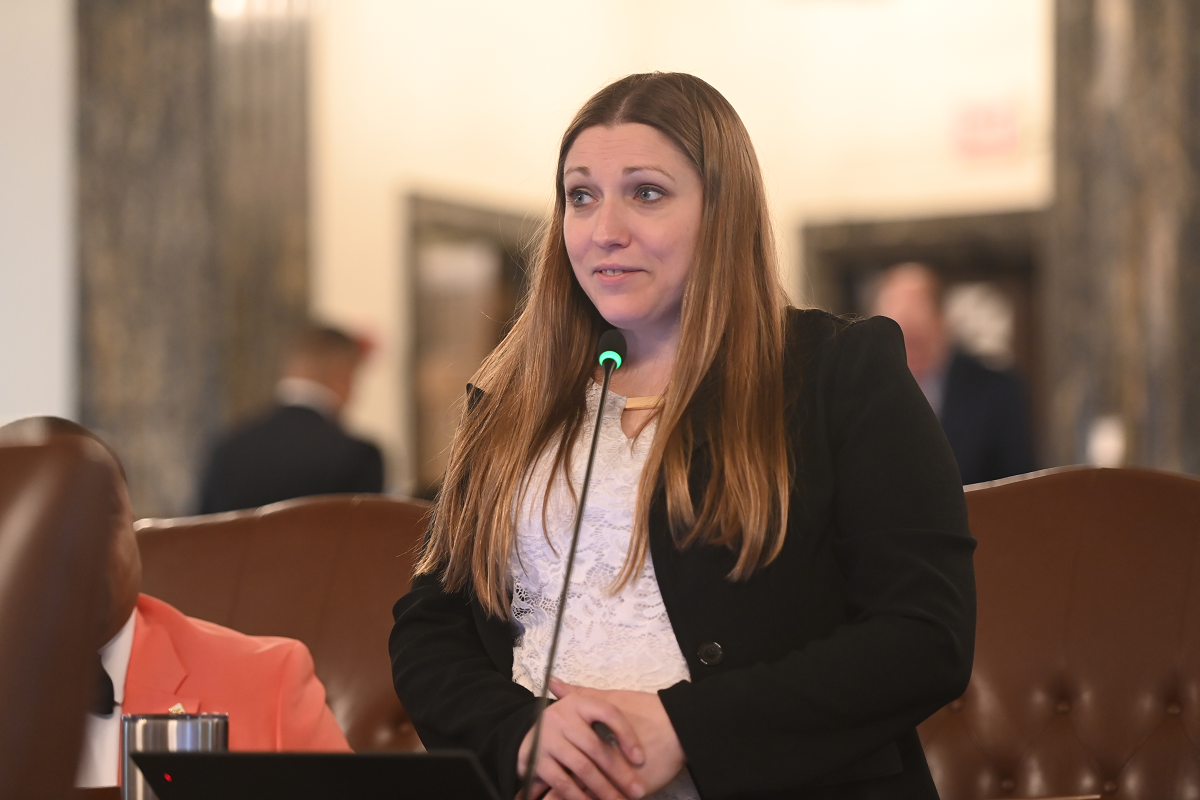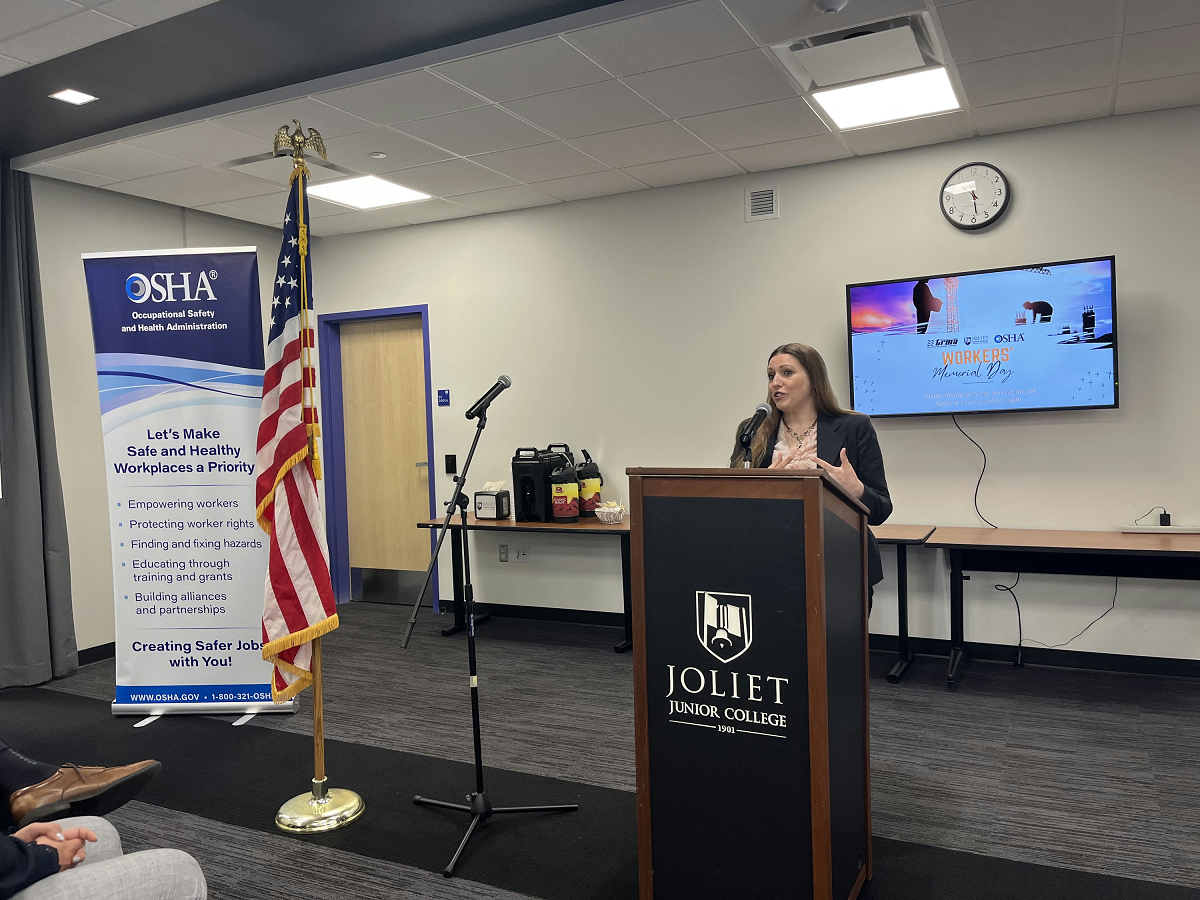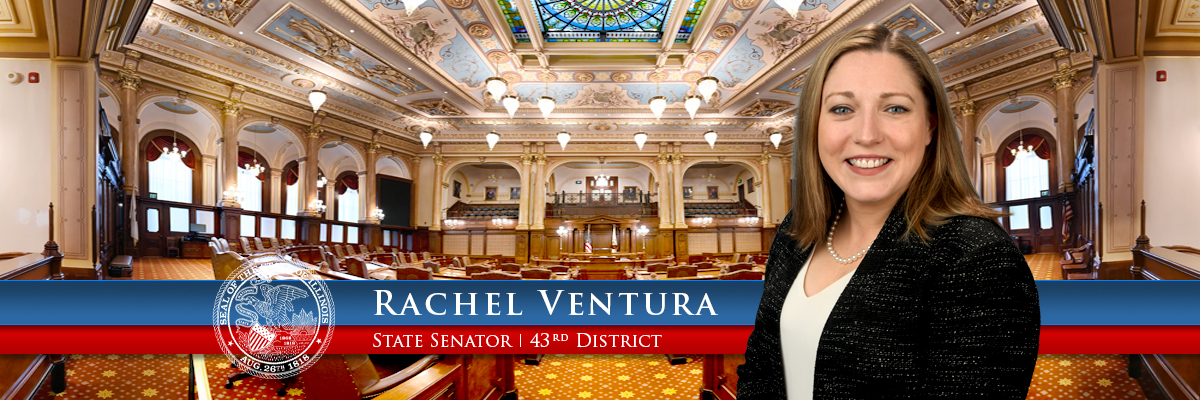- Details

SPRINGFIELD – In an effort to expand clean energy infrastructure across Illinois, State Senator Rachel Ventura is leading an initiative that would allow local government to apply for loans through the Illinois Finance Authority Climate Bank.
“By offering low-rate loans to local government, the state will not only save taxpayers money in the long run, but also address and tackle the effects of climate change head on,” said Ventura (D-Joliet). “Local governments who want to invest in green infrastructure or environmental educational programs would be able to do so with this loan. We need every level of government to make drastic improvements and changes to mitigate the effects of climate change.”
Senate Bill 3597 would allow units of local government to apply and obtain a loan from the Illinois Finance Authority Climate Bank to build, purchase, remodel or improve clean energy infrastructure.
After the Climate and Equitable Jobs Act passed in 2021, cities in Illinois were allowed to borrow funds from the Climate Bank. Between 2022 and 2023, the IFA/Climate Bank has mobilized approximately $627 million in private capital for climate finance projects, including water quality infrastructure, solid waste management and Commercial Property Assessed Clean Energy projects.
Currently, units of local government borrows from the bond market, but by borrowing from the Climate Bank, they will receive a lower interest rate, saving all taxpayers money.
In 2023, the first full year of IFA's designation as the Climate Bank, it mobilized $256 million for climate finance purposes. In early April, IFA/Climate Bank became a sub awardee of a $5 billion national federal award to the Coalition for Green Capital through the USEPA Greenhouse Gas Reduction Fund (GGRF) of the Inflation Reduction Act. Additionally, IFA/Climate Bank submitted/participated in at least nine federal funding applications/awards. To date, they have received $60 million in federal funding awards, with more anticipated.
"Good-paying jobs, environmental sustainability and long-term economic growth are at the heart of the clean energy goals Illinois lawmakers have been pursuing for years, and this measure is another step toward making those goals a reality," said House Majority Leader Robyn Gabel (D-Evanston). "In addition to financial benefits, communities across our state will get the benefits of preserving our environment, a responsibility we have towards future generations who deserve a natural world they can enjoy."
Senate Bill 3597 passed the House Financial Institutions and Licensing Committee on Tuesday and now heads to the House floor for further consideration.
- Details
JOLIET – State Senator Rachel Ventura recently announced that two local Fire Protection Districts in the 43rd District are recipients of the 2024 Small Equipment Grant Program from the Illinois State Fire Marshal.
“Far too often, rural areas don’t have the funds to buy new equipment to help them protect their communities,” said Ventura (D-Joliet). “I commend both of the local fire protection districts in our community who will receive grants to purchase much-needed equipment so that they can effectively and safely do their job and aid local residents.”
A total of $4 million was awarded to 165 fire departments or districts and EMS providers across the state. The program was established to provide grants of up to $26,000 each for the purchase of small firefighting and ambulance equipment.
From the 165 recipient recipients, both the Darien-Woodridge Fire Protection District and the Lockport Township Fire Protection District received $26,000 each. The grant allows both the districts the opportunity to purchase small equipment they may otherwise not be able to purchase.
“These grant dollars can be used on a variety equipment that is essential to keeping our emergency workers safe,” said Ventura. “Whether it be used for portable generators, defibrillators or personal protective equipment, I am glad our volunteer fire departments and districts who need it most are receiving this assistance.”
To view all 165 grant recipient winners, click here.
- Details

JOLIET – State Senator Rachel Ventura, along with prominent workers’ rights advocates and Three Rivers Manufacturers’ Association, came together at Joliet Junior College Friday to promote and highlight the importance of improving workplace safety and honor those who have been injured or killed from workplace accidents.
“It’s essential to practice safety in the workplace to prevent these injuries and deaths. Every person deserves a safe work environment, and employers need to be diligent in following the rules in place,” said Ventura (D-Joliet). “As a member of the Warehouse Safety Task Force, I recognize the efforts that the state is making to improve safety in Illinois and encourage all employers to regularly update and educate their workers on workplace safety.”
Ventura recently passed a resolution in the Senate to declare April 26, 2024 as Workers' Memorial Day in Illinois. Senate Resolution 895 encourages all employers to reaffirm their efforts toward improving workplace safety and serves as a day of remembrance and action for workers killed, disabled, injured, or made unwell by their work. Additionally, it strives to seek stronger health standard enforcement and treating workers with dignity as constant improvements in worker safety are pursued.
- Details
NEW LENOX – State Senator Rachel Ventura joined Governor Pritzker and several state legislators at Silver Cross Hospital Wednesday to discuss the importance of the Healthcare Protection Act.
“I previously worked at an insurance company, which showed me firsthand how they prioritized profits over providing actual care,” said Ventura (D-Joliet). “The Healthcare Protection Act would end this practice of insurance companies putting profits above people and, more importantly, would stop insurance companies from practicing medicine without a license.”
More Articles …
Page 38 of 59






